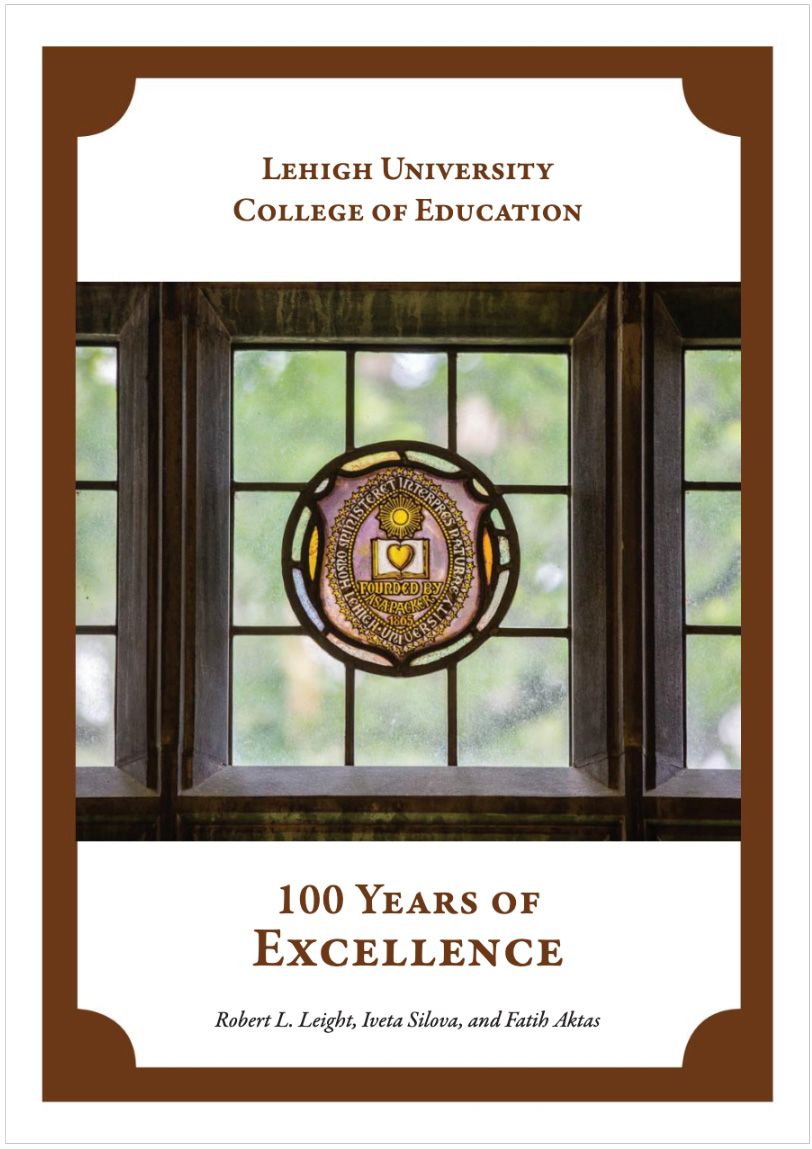Our History
Education at Lehigh

Early Days of Psychology and Pedagogy
Although Lehigh University traces its founding to 1865, the formal study of education did not begin at Lehigh until early in the 20th century. Previously, pedagogy and its related discipline, psychology, were considered to be subsets of philosophy. But the induction of pedagogy into the university curriculum in the waning decades of the nineteenth century helped to move psychology and pedagogy out of philosophy and legitimize them as collegiate academic disciplines.
Lehigh University already had begun to recognize an obligation to provide courses for school teachers as early as 1898, when President Thomas Drown encouraged Lehigh department heads to consider providing courses open to the public through extension courses and summer school. According to W. Ross Yates, “Extension courses and the summer school brought older people from Bethlehem and the surrounding areas onto the campus.… those were school teachers, who soon were the largest occupational group taking advantage of the new opportunities” (Yates, 1992, p. 121).
By 1904, the Philosophy and Psychology Department offered courses in pedagogy and the history of education.
Preparing Teachers, Administrators and School Specialists
The first scholar employed by Lehigh to establish formal study of education was Percy Hughes, who arrived in 1907. Hughes was a progressive on a conservative campus. Through his vision and hard work, he created a sequence of courses so that Lehigh’s undergraduates, all of whom were male, could enter the teaching profession. By extension courses and summer session courses, in-service teachers, both male and female, could prepare for leadership positions.
By the 1930s, elementary and secondary schools needed trained administrators and school specialists, such as guidance counselors. The Education Department provided certification and graduate degree programs for administrators and school specialists while maintaining the teacher certification program for Lehigh undergraduates.
After World War II the baby boom created a shortage of teachers and other school personnel. The Department of Education had reached a critical mass in faculty size and expertise so that it was promoted to a graduate School of Education. By that time a laboratory school, named Centennial School for the centennial celebration of Lehigh University, was in operation.
The College of Education is Born
Graduate programs in education are sensitive to demographic conditions, and with the end of the baby boom there was a downturn in student enrollment by 1979, which resulted in the possibility that the new School of Education might be terminated. Through the efforts of College leadership, and with the support of education alumni and university faculty, the accomplishments of the School of Education faculty were recognized and the school was promoted to a College of Education in 1985.
Two years later, in 1987, the College was moved to the newly acquired Mountaintop Campus. During the intervening years the College of Education has thrived under the leadership of deans Alden Moe, Roland Yoshida, Sally White, Gary Sasso, William Guadell, and Robin Hojnoski.

Percy Hughes
Percy Hughes was a visionary. The traditions of scholarship, teaching and service which he established early in the 20th century have been maintained and strengthened by his successors. The vision which he labored to fulfill was a prologue to our rich history, detailed in the book, "100 Years of Excellence".
Hughes' family generously sponsors an annual student award in his memory, the Percy Hughes Award Scholarship, Humanity, and Social Change.

100 Years of Excellence
In 2016, the College celebrated 100 years with the publication of Lehigh University College of Education: "100 Years of Excellence". The book is available online and contains an extensive history of our College.